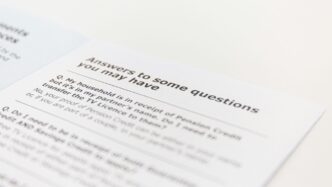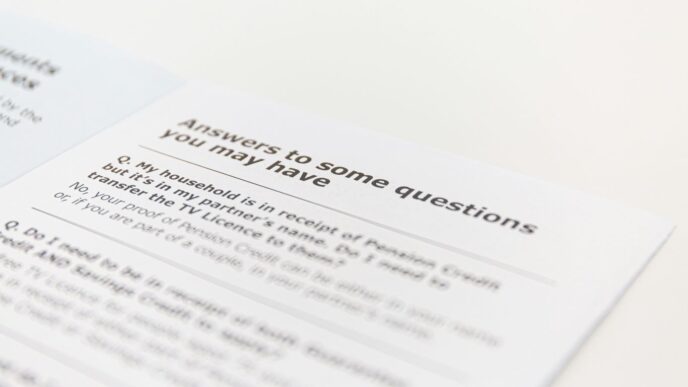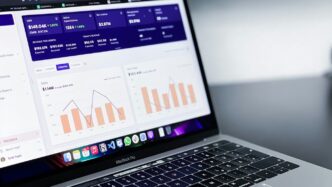Feeling a bit stressed about your next job interview? You’re not alone. It can feel like a test, but really, it’s just a chat to see if you and the company are a good match. Knowing what to expect is half the battle. This guide is your go-to faq on interview questions, helping you prepare so you can walk in feeling confident. We’ll cover the common questions you’ll hear and how to answer them like a pro.
Key Takeaways
- Prepare answers for common interview questions like ‘Tell me about yourself’ and ‘Why this job?’
- Research the company and the role beforehand to tailor your responses.
- Use the STAR method to structure your answers for behavioral and competency-based questions.
- Practice answering questions about your strengths and weaknesses, and how you handle challenges.
- Always have thoughtful questions ready to ask the interviewer to show your interest and fit.
Understanding Common Interview Question Categories

Job interviews can feel like a test, but knowing what kind of questions to expect makes a big difference. Interviewers use different types of questions to get a full picture of who you are as a candidate. They want to see how you think, how you’ve acted in the past, and how you might handle things in the future. Understanding these categories helps you prepare better answers.
General Interview Questions
These are often the first questions you’ll hear. They’re meant to get the conversation started and help the interviewer learn a bit about your background and career path. Think of them as a warm-up.
- Can you tell me about yourself? This is a classic. It’s your chance to give a brief overview of your professional journey, highlighting what makes you a good fit for this specific role.
- Why are you interested in this job? Here, you want to show you’ve done your homework and genuinely connect your skills and interests to the company’s needs.
- What are your strengths and weaknesses? Be honest but strategic. Focus on strengths relevant to the job and frame weaknesses as areas for growth.
Behavioral Interview Questions
These questions focus on your past actions as a predictor of future performance. They usually start with phrases like "Tell me about a time when…" or "Describe a situation where…". The goal is to see how you’ve handled real-life work scenarios.
- Tell me about a time you faced a challenge at work.
- Describe a situation where you had to work with a difficult team member.
- Give an example of a time you failed.
Situational Interview Questions
These questions present hypothetical scenarios to see how you would react or solve a problem. They often start with "What would you do if…" or "How would you handle…". They test your problem-solving skills and judgment.
- What would you do if a client was unhappy with your work?
- How would you prioritize tasks if you had multiple urgent deadlines?
- Imagine you made a mistake that impacted a project. What steps would you take?
Competency-Based Questions
These questions are designed to assess specific skills or competencies required for the job. They often overlap with behavioral questions but focus more directly on whether you possess the necessary abilities.
- Describe a time you demonstrated leadership. (Assesses leadership skills)
- How do you ensure accuracy in your work? (Assesses attention to detail)
- Tell me about a time you had to adapt to a significant change. (Assesses adaptability)
Mastering the “Tell Me About Yourself” Question
This question, often the very first one you’ll hear, is your initial chance to make a good impression. It might seem simple, but it’s a key part of the interview. Think of it as your professional introduction, a brief overview of who you are and why you’re a good fit for this specific job. It’s not about your life story; it’s about your professional journey and how it connects to the role you’re seeking. The goal is to give a concise, relevant, and engaging answer that sets a positive tone for the rest of the conversation.
Crafting a Professional Response
When you’re asked to talk about yourself, it’s best to use a structure that flows logically. A common and effective approach is the present-past-future model. Here’s how it breaks down:
- Present: Start by talking about your current role. Mention your title, the company you work for, and what you do there. Briefly touch on a recent accomplishment or a key responsibility that highlights your skills.
- Past: Next, discuss your relevant background. This includes your previous work experience, education, or specific skills that led you to where you are now. Focus on experiences that directly relate to the job you’re interviewing for. For instance, if the job requires project management, talk about your past project successes.
- Future: Conclude by explaining why you’re interested in this particular role and company. Connect your past experiences and current skills to the future opportunities this job presents. Show that you’ve thought about your career path and how this position fits into it.
Keep your answer to about two minutes. It’s enough time to cover the key points without rambling. Practicing this out loud can help you refine your timing and delivery.
Highlighting Relevant Experience
When you talk about your background, don’t just list your past jobs. Instead, pick out the experiences that directly align with what the employer is looking for. Look at the job description and identify the key skills and responsibilities. Then, think about specific times you’ve demonstrated those qualities.
For example, if the job requires strong communication skills, you might say something like: "In my previous role at XYZ Corp, I was responsible for presenting quarterly reports to senior management, which helped me hone my public speaking and data visualization abilities."
It’s also helpful to quantify your achievements whenever possible. Instead of saying "I improved customer satisfaction," try "I improved customer satisfaction scores by 15% by implementing a new feedback system."
Tailoring Your Answer to the Job
One of the biggest mistakes candidates make is giving a generic answer to this question. To truly impress, you need to show that you’ve done your homework and understand the specific needs of the role and the company. Before the interview, spend time researching the company’s mission, values, and recent projects. Also, carefully review the job description.
Consider these points when tailoring your response:
- Company Culture: Does the company emphasize teamwork, innovation, or customer service? Weave in examples that show you embody those values.
- Job Requirements: What are the top 2-3 skills or experiences the employer is seeking? Make sure your answer directly addresses these.
- Industry Trends: Are there any current trends in the industry that you can connect your experience to?
By customizing your answer, you demonstrate genuine interest and show the interviewer that you’re not just looking for any job, but this specific job. This makes you a much more compelling candidate. You can find great tips on how to prepare for interviews at Big Interview.
Answering Behavioral Questions Effectively
Behavioral questions are a big deal in interviews these days. They’re basically asking you to talk about how you’ve handled things in the past, because, you know, what you’ve done before is often a good sign of what you’ll do in the future. It’s not just about what you say you can do, but what you have done. Employers want to see real examples of your skills in action.
The STAR Method Explained
So, how do you actually answer these? The most popular way is the STAR method. It’s a simple framework that helps you tell a clear story about your experience. Think of it like this:
- Situation: First, set the scene. Briefly explain the context of the situation you were in. Where were you? What was going on?
- Task: Next, describe what your responsibility or the goal was. What did you need to accomplish?
- Action: This is where you talk about what you did. Detail the specific steps you took to address the situation or complete the task. Focus on your contributions.
- Result: Finally, share the outcome. What happened because of your actions? Try to quantify the results if you can, like mentioning increased sales or reduced costs. This is where you show the impact you made.
Structuring Your Stories
When you’re putting together your STAR stories, pick examples that are specific and directly relate to the job you’re interviewing for. Don’t just pick any old story; choose one that highlights the skills the employer is looking for. It’s also important to practice telling these stories out loud. You don’t want to sound like you’re reading from a script, but you do want to be confident and clear. Think about how you can connect your past experiences to the role you’re applying for. Practicing your response, but avoiding memorizing it word-for-word, ensures you sound natural and confident during the interview. By mastering this question, you’ll set a positive tone for the rest of your interview. For instance, if the job requires teamwork, have a story ready about a time you collaborated effectively. If it’s about problem-solving, prepare an example of a challenge you overcame. You can find great examples of how to structure these answers through video training that breaks down effective communication techniques.
Examples of Behavioral Questions
Here are some common behavioral questions you might encounter:
- Teamwork: "Tell me about a time you had to work with someone whose personality was very different from yours."
- Problem-Solving: "Describe a situation where you faced a significant challenge at work and how you overcame it."
- Adaptability: "Give me an example of a time when you had to think on your feet."
- Time Management: "Tell me about a time your responsibilities got overwhelming. What did you do?"
- Customer Service: "Describe a time when you had to interact with a difficult client. How did you handle it?"
Remember, the goal is to provide concrete examples that showcase your abilities and how you handle different work situations. It’s about demonstrating your past behavior as a predictor of your future performance.
Strategies for Difficult or Unexpected Questions
It’s pretty common for interviews to throw you a curveball. You know, those questions that make you pause and think, ‘Wait, what?’ About 60% of employers use these kinds of unexpected questions to see how you handle pressure. So, what’s the game plan when you’re put on the spot?
Staying Calm Under Pressure
First things first, take a breath. Seriously, just a slow inhale and exhale can make a world of difference. It helps you reset and think clearly. Don’t feel like you have to jump in with an answer immediately. It’s okay to take a moment. You can even say something like, ‘That’s an interesting question, let me think about that for a second.’ This shows you’re thoughtful, not flustered. Remember, they’re not trying to trick you; they’re trying to see your thought process.
Asking for Clarification
Sometimes, a question might be a bit unclear, or maybe you just want to make sure you’re on the right track. Don’t be afraid to ask for more information. You could say, ‘Could you tell me a bit more about what you mean by X?’ or ‘To make sure I understand, are you asking about Y?’ This not only helps you give a better answer but also shows you’re engaged and want to get things right. It’s better than guessing and giving an answer that misses the point entirely. For example, if asked about adapting to new regulations, you might ask for specifics about which technology firms‘ compliance challenges they are most interested in.
Redirecting to Your Strengths
If a question feels like a dead end or highlights an area where you’re not as strong, it’s smart to pivot. You can acknowledge the question and then steer the conversation back to something you excel at. For instance, if asked about a weakness, you can mention it briefly and then immediately talk about how you’re actively working to improve it. Or, if the question is about a specific skill you lack, you can say something like, ‘While I haven’t had direct experience with X, my background in Y has prepared me to quickly learn and adapt to new challenges.’ This shows self-awareness and a proactive attitude. Having a few prepared stories using the STAR method (Situation, Task, Action, Result) can be a lifesaver here, allowing you to showcase your capabilities even when faced with an unexpected prompt.
Leveraging AI for Interview Preparation
Getting ready for a job interview can feel like a big task, but thankfully, there are new tools that can really help. Artificial intelligence is changing the game for how we prepare, giving us a bit of an edge in a competitive job market. Think of it as having a personal coach available 24/7.
AI-powered interview coaching offers some pretty neat advantages. It’s not just about practicing; it’s about getting specific feedback tailored just for you. This can help you pinpoint exactly where you need to improve, whether it’s how clearly you explain your experience or how you come across. Practicing with these tools can seriously boost your confidence. Plus, you can do it all on your own schedule, whenever and wherever works best for you. It’s a flexible way to build up your skills without any pressure.
Many AI tools offer mock interviews that feel pretty close to the real thing. They can analyze your answers, looking at how well they address the question, how clear your speech is, and even your tone. Some can even pick up on things like filler words or how fast you’re speaking. This instant feedback is gold. It lets you make quick adjustments and see your progress right away. It’s like having a practice run that shows you exactly what to work on, so you feel much more ready when the actual interview rolls around. You can find tools that help you build out your answers, like an interview answer buddy, to make sure you’re hitting all the right points.
One of the biggest pluses of using AI for interview prep is the immediate feedback. Instead of waiting days to hear back from a practice session, AI can tell you what’s working and what’s not in the moment. This helps you learn faster and adapt your approach. It’s a great way to get a feel for how you’re performing and make sure you’re presenting yourself in the best possible light. For example, some platforms can even give you insights into your word choice and speaking pace, helping you sound more polished and professional. This kind of targeted practice can make a real difference, helping you feel more prepared and less anxious. It’s a smart way to get ready, much like how companies prepare for big launches, such as the new spaceship from Virgin Galactic.
Asking Insightful Questions to Interviewers
So, the interview is winding down, and they ask that classic question: "Do you have any questions for us?" This is your moment, your chance to really show you’ve done your homework and that you’re genuinely interested. It’s not just about getting information; it’s about making a good impression. Not asking questions can make you seem uninterested, and honestly, who wants to hire someone who isn’t curious about the job or the company?
Researching Company Goals
Before you even walk into the interview, spend some time digging into what the company is all about. What are their big objectives? What projects are they excited about? Look at their recent press releases, their "About Us" page, and even their social media. If you see they’re launching a new product or expanding into a new market, that’s gold. You can then ask something like, "I noticed the company is focusing on expanding into the European market. What are some of the key challenges and opportunities you foresee with this initiative?" This shows you’re thinking strategically and are interested in the company’s future.
Inquiring About Role Expectations
This is where you get specific about the job itself. You want to understand what success looks like in this role. Asking about performance metrics is a smart move. For example, you could ask, "How is success typically measured for someone in this position? What are the key performance indicators I should be aware of?" You might also want to know about the day-to-day. A good question here is, "Could you describe what a typical week looks like in this role, and what are the immediate priorities for the person who fills this position?" Understanding the expectations helps you see if you’re a good fit and how you can contribute from day one. It’s also a good idea to ask about the first 30, 60, or 90 days. This shows you’re thinking about hitting the ground running.
Demonstrating Long-Term Commitment
Your questions can also signal that you’re looking for more than just a short-term gig. You want to know about growth opportunities and how the company supports its employees’ development. Asking about career paths is a great way to do this. You could say, "What opportunities are there for professional development and growth within the company?" or "How does the company support employees who want to advance their careers?" You might also inquire about team dynamics and company culture. For instance, "What are the biggest strengths and challenges the team is currently facing?" or "How would you describe the team’s working style and collaboration?" These questions show you’re thinking about fitting in and contributing long-term. It’s also helpful to ask about internal promotions. "How many people have been promoted internally in the last year?" can give you a sense of the company’s commitment to its employees’ growth. Asking thoughtful questions shows you’re serious about the opportunity and are looking for a place where you can build a career, not just collect a paycheck. It’s a two-way street, after all; you’re interviewing them just as much as they’re interviewing you. You can even use your elevator pitch to frame some of your questions, showing how your skills align with their needs. Remember, preparing your questions in advance is key to making a great impression on interview day. You can find more tips on preparing for interviews at Elevator.
Essential Interview Preparation Steps

Getting ready for a job interview isn’t just about knowing the answers to common questions. It’s a multi-step process that shows you’re serious about the opportunity. Thorough preparation can significantly boost your confidence and your chances of success.
Practicing Common Questions
It’s easy to get nervous when you’re put on the spot. That’s why practicing your answers is so important. You don’t want to sound like you’re reading from a script, but you do want to have your key points ready. Try talking through your answers in front of a mirror, or even better, do a mock interview with a friend or a career coach. This helps you get comfortable with how you sound and how you present yourself. It’s also a good way to get feedback on your pace and clarity.
Researching the Company
Before you even think about your answers, you need to know who you’re talking to. Look at the company’s website, check out their social media pages, and see what people are saying on sites like Glassdoor. Understanding the company’s mission, recent projects, and overall culture will help you tailor your responses and show genuine interest. It also gives you material for those all-important questions you’ll ask at the end. Knowing what sets the company apart helps you explain why you want to work there. You can even find ways to connect your own experiences to their current initiatives, which can really make you stand out. For instance, if you see they’re focusing on improving their social media presence, you can mention how your skills align with that goal. Check out company social media.
Preparing Your Interview Materials
Make sure you have everything you need organized. This usually means having a few copies of your resume, even if they already have it. It’s also a good idea to have a notepad and pen to jot down any important information or questions that come up during the interview. If you’ve prepared a portfolio or any work samples, have those ready to share as well. Thinking about what you’ll wear is also part of preparing your materials – aim for something professional and comfortable that fits the company culture.
Wrapping It Up
So, we’ve gone over a lot of ground, from common questions to how to handle the tricky ones. Remember, interviews aren’t just about answering questions; they’re a chance for you to see if the job is a good fit for you too. Using tools like the STAR method can really help you tell your story. And don’t forget to ask your own questions – it shows you’re really interested. With a bit of practice and the right mindset, you can walk into your next interview feeling much more confident. You’ve got this!
Your Ultimate FAQ on Interview Questions: Ace Your Next Job Interview
What kinds of questions should I expect in a job interview?
You’ll likely hear a mix of questions. Some are general, like “Tell me about yourself,” which helps the interviewer get to know you. Others are behavioral, asking about past experiences, like “Describe a time you faced a challenge.” There are also situational questions, which ask how you’d handle made-up scenarios, and competency-based questions that check your skills for the job. Some questions might even be about fitting in with the company’s vibe.
How do I answer the “Tell me about yourself” question?
Think of this as your chance to give a quick, professional summary. Start with your education or current role, mention key experiences and skills that match the job you’re applying for, and finish by saying why you’re excited about this opportunity. Keep it brief and focused on what makes you a good fit for this specific job.
What’s the STAR method, and how can it help me?
The STAR method is a smart way to answer questions about your past behavior. STAR stands for Situation, Task, Action, and Result. You describe a specific situation you were in, the task you needed to complete, the action you took, and the positive result of your action. It helps you tell clear, impactful stories about your skills and experiences.
How can I prepare for tough or unexpected interview questions?
It’s okay to feel a little nervous when faced with a tricky question! Take a moment to breathe and think. If you’re unsure what they’re asking, it’s perfectly fine to ask for clarification. Try to stay calm and steer the conversation back to your strengths and experiences whenever you can. Showing you can think on your feet is key.
How can AI tools help me get ready for an interview?
AI tools can be like having a personal interview coach! They can give you practice questions, let you record your answers, and provide instant feedback on how you sound and what you could improve. It’s a great way to build confidence and get comfortable answering questions before the real interview.
What should I ask the interviewer at the end of the interview?
Asking questions shows you’re really interested and engaged. Do a little research on the company beforehand. You could ask about what a typical day in the role looks like, what the team is like, or what opportunities there are to grow. Asking about how you can help the company achieve its goals is also a great way to impress them.














